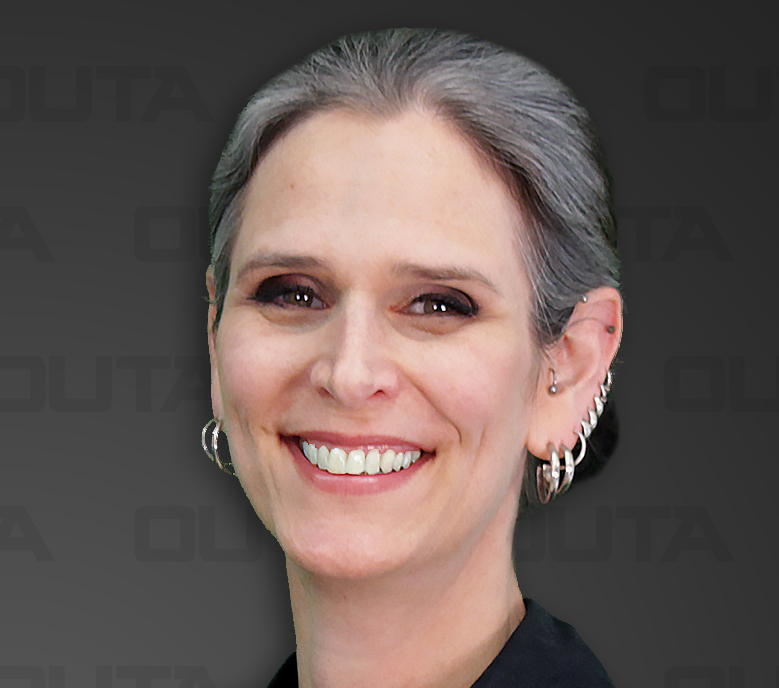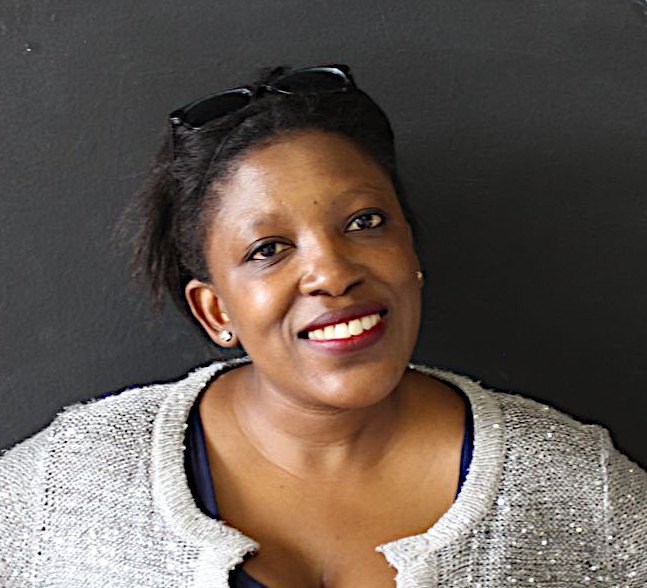Lawson Naidoo. (Photo: Ⓒ Nickay 2002 -2020)
State capture has been an ongoing saga in South Africa for many years now, and although steps have been taken to deal with this phenomenon, which has cost the country trillions, it is still ongoing. Those who expose corruption face censure and blowing the whistle may even cost them their lives. To expose corruption effectively, an independent anti-corruption body must be established, and its findings must be acted upon, for the public to regain trust in this government.
It was in this context that the Democracy Development Program (DDP) in partnership with the Mail & Guardian and the Konrad Adenauer Stiftung hosted a webinar to discuss the extent of state capture, how to ensure justice will prevail and what changes are needed to ensure that whistleblowers of corrupt activities are protected.
 Stefanie Fick
Stefanie FickGuest speakers were Advocate Stefanie Fick, Executive Director, Organisation Undoing Tax Abuse (Outa); Valencia Talane, Senior Journalist and Editor, Corruption Watch; and Lawson Naidoo, Executive Secretary, Council for the Advancement of the South African Constitution (CASAC). The webinar moderator was Sphamandla Brian Mhlongo, Senior Programmes Officer at DDP.
Stephanie Fick opened the meeting by discussing the history of the State Capture Commission (Zondo commission/SCC), which is now in its third year. She said that it is extremely important that the commission’s findings are made public (Deputy Chief Justice Raymond Zondo is due to deliver his report at the end of 2021). Will the SCC ensure accountability, and what does that even mean, she asked? She said that accountability is a willingness to accept responsibility. Even if the SCC does not result in people being prosecuted and jailed, it has ensured transparency, revealed the extent of state capture, and hopefully it will guarantee that this kind of corruption is not repeated in future.
At present there are few consequences for corruption. Fick gave the example of Mosebenzi Zwane, who was previously the minerals minister, and is now Chairperson of the Portfolio Committee on Transport in Parliament: was there accountability in this instance? Many investigations into corruption in SOEs were started, but nothing happened thereafter. “There is a great need to hold those in power accountable, in terms of the Constitution, so we can have a professional public service that actually serves the public,” said Fick.
The SCC has cost the public nearly a billion rands, but Fick believes it was absolutely worth it, in terms of transparency, and in ensuring that state capture does not recur. “Civil society cannot fall asleep at the wheel: we need to hold those in power to account, even though it is hard to do this while we are all struggling to make a living. Corruption favours an elite few, and it impacts on all of us directly. Perhaps the appointment of SOE staff can be monitored more closely to ensure ethical leadership,” she suggested.
Lawson Naidoo said the SCC has been running since 2018 and has had five extensions. It was established because former public protector Thuli Madonsela felt that her office could not deal with the extent of state capture she believed was occurring. The SCC has examined a wide range of issues, such as the Vrede Dairy Project, the Waterkloof landing and the role that the Gupta family played. “We are all looking forward to the results of the commission,” said Naidoo.
 Valancia Talane
Valancia TalaneHow can we strengthen our Constitution to prevent such events from recurring? The role of Parliament is especially important, and this is something that CASAC is looking into. CASAC recommends that Parliament be compelled to act on certain findings, instead of turning a blind eye when corruption is revealed. The electoral system is also under review, but this “will not be a silver bullet for South Africa’s problems”. The anti-corruption framework must be strengthened. The legislation is sound, but the implementation thereof is weak, as there is overlap between various institutions, such as the public protector, the NPA (National Prosecuting Authority and the Hawks. A national anti-corruption strategy has been hammered out by government and civil society, which the Cabinet has now adopted.
At the heart of this strategy is the establishment of an independent anti-corruption advisory council. The current bodies such as the Hawks and NPA fall under other bodies and are not independent. There is an investigating directorate that has been set up within the NPA to prosecute corruption, but it suffers from a lack of capacity and resources. The regulations governing the SCC were changed in July 2020, which made it easier for the commission to share the information it uncovers with this directorate and the Hawks and NPA. But state capture has not ended, despite the establishment of the SCC; there has been rampant corruption during the pandemic, for instance regarding the procurement of PPE. “Convictions must take place, and perhaps we must prioritise which cases require prosecution the most; utilising our tax laws may help in this regard,” said Naidoo.
Sphamandla Brian Mhlongo asked Valencia Talane to discuss the issue of whistleblowing, how whistleblowers such as Athol Williams and Babita Deokaran can be better protected, and what the legislation is concerning this issue. Talane said that until whistleblowers are more protected, many will be discouraged from exposing corruption. We must be able to clearly define what a whistleblower is, and what legislation can protect them. At present, our legislation defines a whistleblower as someone who reports corruption in the workplace, but much of South Africa’s corruption occurs in public spaces.
If a public servant is reporting corruption, they must be afforded protection in the form of ensuring their livelihood, not just their personal safety. They must be able to carry on doing the work they were doing, without worrying about repercussions. There is an urgent need for an education drive to help people identify what being a whistleblower is, and what blowing the whistle entails. “A survey that Corruption Watch conducted revealed that many people don’t trust the process of reporting corruption, as often nothing will be done, and because there are no consequences, they are endangering themselves for nothing,” said Talane.
Mhlongo asked if other processes of accountability could be brought into play, in addition to prosecution and conviction, including internal procedures such as disciplinary hearings. People are tired of all the talking that is going on in the SCC, and many are wondering if the recommendations of such commissions are being acted upon.
 Sphamandla Brian Mhlongo
Sphamandla Brian MhlongoNaidoo pointed out that many believe that corruption takes place in the public sector, but this commission and others have revealed the extent of collusion between the private and public sectors, with companies such as KPMG and Steinhoff deeply involved. The SIU (Special Investigating Unit) said it received 1 276 reports of corruption and maladministration in the 2020/21 financial year, which enabled it to recover R1.8-billion, to prevent financial losses of R2.7-billion and submit evidence in court to the worth of R64.8-billion. This shows how critical whistleblowers are, particularly as the nature of what they uncover is usually deeply hidden from public view.
The private sector needs to take a firm stance on corruption, particularly the big business organisations. “I think the Zondo Commission was worth it, but we will have to see what happens to its report; many previous reports have been ignored,” said Naidoo.
There are always at least two parties involved in corruption, said Fick. We need to create a culture of anti-corruption, as it has a hugely negative impact on society. Whistleblowers should be rewarded and lauded; at the moment their actions are not encouraged, but it takes tremendous bravery to blow the whistle.
Mhlongo said the SCC has been accused of being used for fighting factional battles within the ANC, so how much trust will there be in its findings? Talane said that President Cyril Ramaphosa has called the SCC a “washing machine” that will cleanse and renew our anti-corruption stance, but the public must make it known to the government how discontent and angry it is about the current state of affairs. We must demand accountability, so once Ramaphosa has the report in his hands, he must use the washing machine effectively. I think Zondo has navigated the factional issue very commendably, and remained independent and fair.
Closing comments
The SCC has pointed out what went wrong, and this is very important, said Fick. Now we need strong leadership to demonstrate that there is accountability from its findings. We deserve better!
Naidoo commended the commission for what it has achieved. There is very little confidence in people that the state will take action on corruption, so an independent body that exposes and acts on corruption is essential. CASAC and PARI (Public Accountability Research Unit) will be hosting a conference to unpack the Zondo Commission report in March 2022.
Talane said one of the most disheartening takeaways from the SCC was the number of professional people who have left the public sector because of corruption. It is not going to be easy to restore trust in the sector, and to restore public confidence in the government. Mhlongo then closed proceedings. — Derek Davey